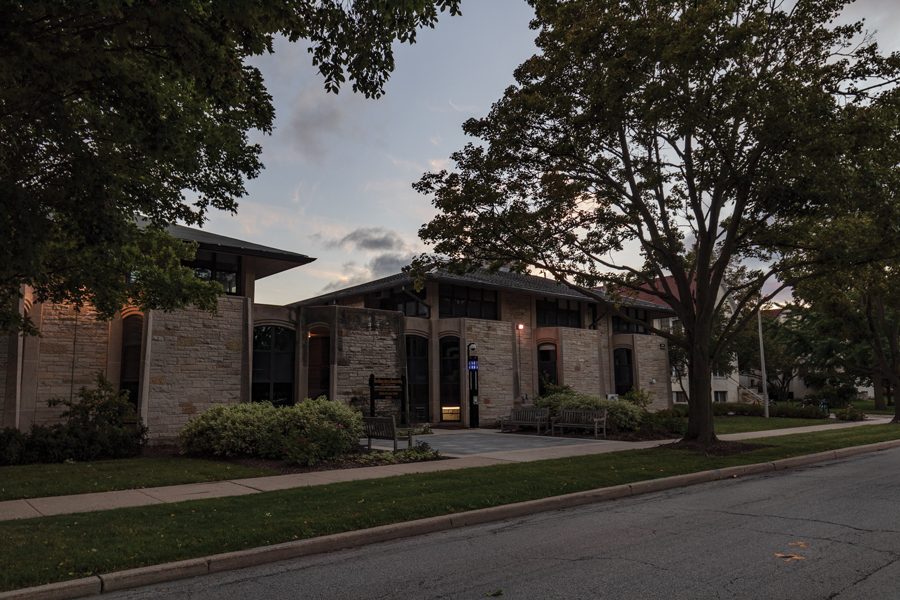Public interest experts, workers undeterred by initial low acceptance for loan forgiveness program
Alec Carroll/Daily Senior Staffer
Northwestern Career Advancement. NCA Director Mark Presnell cautioned students that PSLF is federally funded and may be entirely scrapped under the current administration.
November 30, 2018
Over 28,000 public servants applied for a loan forgiveness program between last September and this April, and only 96 were accepted. The statistic is daunting, but public interest experts and workers said they were confident the numbers only represented a rocky start and would get better.
The Public Service Loan Forgiveness forgives student debt for people working in the public sector after they’ve made 120 monthly payments under an income-driven plan. However, applicants are accepted under specific conditions, like working for approved employers and consolidating originally ineligible loans.
For Northwestern students interested in pursuing public interest work after school, the program provides a necessary safety net. Emily Powers (School of Law ’15) said she probably would not have attended law school if the program did not exist.
Some experts and workers said it’s likely people misunderstood the strict requirements needed to fit the program. Ninety-nine percent of applications were denied because applicants failed to meet requirements or had incomplete forms, an Education Department report found.
But requirements have become more transparent and easier to follow in recent years, which will likely allow more applicants to receive loan forgiveness, said David Stern, executive director of nonprofit Equal Justice Works.
“This is a new program that’s just getting off the ground,” he said. “We always knew there would be some hiccups because people were learning about how to enroll and how to get in the program.”
Stern has worked to familiarize public servants with the Public Service Loan Forgiveness Program through the nonprofit, which is dedicated to supporting public servants. He said it’s key for students to be able to pursue public service jobs while being able to pay off their loans.
“(The program) is the gateway,” he said. “It’s the key element to enable people in today’s high debt world.”
Powers believes she is on track to receive aid and that understanding the requirements has become easier, as the company in charge of organizing the program updates its website to clarify misunderstandings.
Still, Powers said she called Pritzker’s public interest associate director out of concern after she read the reports on how few applications had been accepted. The program required a lot of “troubleshooting” for Powers to make payments, she said.
Mark Presnell, executive director of Northwestern Career Advancement, said the low numbers aren’t surprising given the program’s complexity.
“It’s easy for anyone to miss a payment, to end up with an employer that doesn’t qualify,” Presnell said. “Ten years pass, as an alum you’re going to go through multiple employers, and making sure all those benchmarks are hit is pretty challenging.”
Although Presnell said he thinks the program works for some students, he cautions students that as a federal program, it may change — or be entirely scrapped — within the 120-month payment plan period. President Donald Trump’s budget proposal for 2018 included eliminating the program to save money. Last year, U.S. Rep. Virginia Foxx (R-N.C.), who chairs the House Committee on Education and the Workforce that oversees the forgiveness program, proposed a loan system overhaul that would eliminate the program.
For Powers, public service work is “invaluable,” and she’s grateful that the program has allowed her to pursue this career path.
“It’s crucial this country continues to value people who want to do that work,” she said. “It’s tiring and daunting, but it’s very rewarding. At the end of the day, I’m really glad I chose this path.”
Email: [email protected]
Twitter: @dvesurai
Email: [email protected]
Twitter: @alexalwwong


